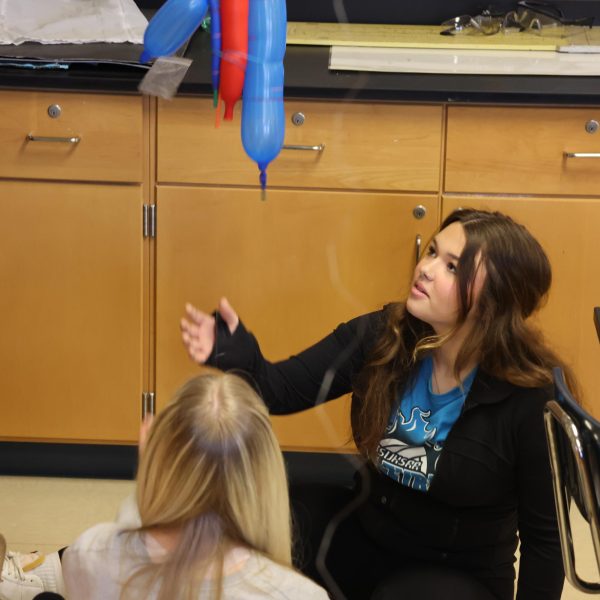AP Classes in High School
February 12, 2018
Since the 1950s, Advanced Placement classes have been an important part of schools’ curriculum. Unfortunately, many of its problems have become obvious due to the massive growth the program experienced in the past few years. Many educators now ask the question, “Do the faults of AP classes outweigh the benefits?”
Advanced Placement is a program issued by the College Board that is intended to challenge students by allowing them to take college-level classes at the high school level. At the end of the class, students take a test that covers all of the material in that course. Students are given the opportunity to earn college credit in high school if their score is high enough for their school of choice. This is beneficial because it allows students the opportunity to earn credit at a lower price than the college class would cost otherwise.
While the benefits of AP classes, such as the opportunity to earn credit, are obvious from the perspective of the students, many educators have doubts about the program’s superiority over other honor roll classes. Part of the issue, according to the New York Times article “Demoting Advanced Placement,” lies largely in the large amount of information that classes are required to cover to be prepared for the test. This unfortunately means that in-depth discussion on complicated topics are not always allowed. This is especially prevalent in history, science, and English, where the aspects of the subjects are defined broadly, but with set-in-stone guidelines of study, specifically what is on the tests. For example, in Advanced Placement United States History (or APUSH, as it is known colloquially), teachers are unable to go in-depth on aspects of the subject that interests both them and their students due to the broad subject matter covered on the test.
Some teachers, on the other hand, argue that the purpose of AP classes is to challenge students and that the huge amount of information does just that. “The whole purpose of an AP class is to mimic a college level course,” says Jennie Gibbs, an AP Chemistry teacher at Carterville High School. “In college level courses, there is a lot of information in one year. I’m in agreement with having a very big standard”.
Another issue that AP classes face is that there is few experiments done to see how AP students hold up in college after taking a college-level course. According to the College Board’s website, “In addition, students who earned higher scores on AP Exams had a higher likelihood of graduating in four years.” Statistics given by the College Board on AP students’ performance show that students that are in AP classes have higher scores on the SAT. Information like this is for the most part irrelevant- it is like say that students that make good grades will do well in college. This is especially true when one considers that in many schools, AP courses have replaced other honor roll courses.
Most of the research done on the Advanced Placement program are from the College Board; however, there is little information regarding how AP classes compare to other Honor Roll classes. In addition to a lack of information, it is difficult to wholly accept the College Board’s data without repeated experimentation from scientists who do not have a vested interest in the results. While AP classes offer credit for passing scores, many colleges and universities are beginning to stop accepting it.
“I think that APUSH benefits students in the long run, especially with college credit,” says McKenzie Rogman, a junior and AP student at Carterville High School. From the student perspective, it is undeniable that at this time, the benefits of taking an AP level class outweigh the faults of the program, especially if one considers that most colleges look for and expect AP classes to be on students’ application. From the perspective of educators and administrators, however, the opinions on the program are more divided. To properly assess whether or not the Advanced Placement program truly holds up to the benefits the College Board professes, more experiments and research needs to be done. For the meantime, AP classes are the best challenge many students get academically and are a necessary part of the average schools’ curriculum.
Contributions by
http://www.nytimes.com/2006/10/04/education/04EDUCATION.html?pagewanted=all
http://www.nytimes.com/2009/04/29/education/29class.html
www.collegeboard.org
https://research.collegeboard.org/sites/default/files/publications/2012/7/researchreport-2007-4-ap-students-college-analysis-five-y
ear-academic-careers.pdf


















